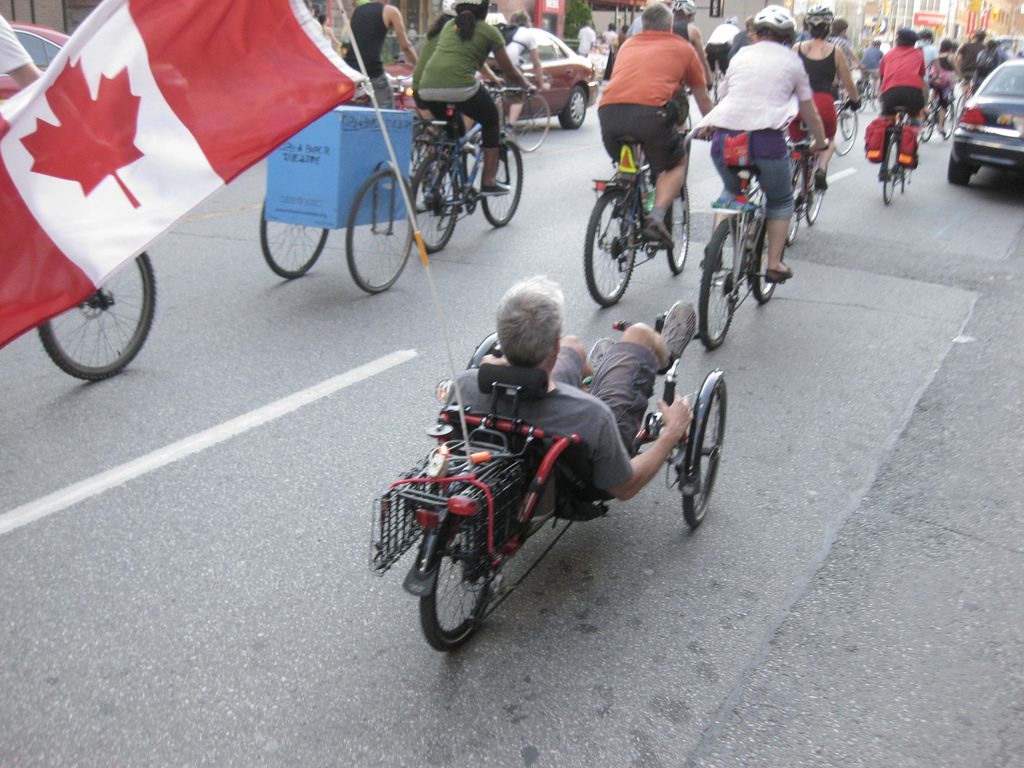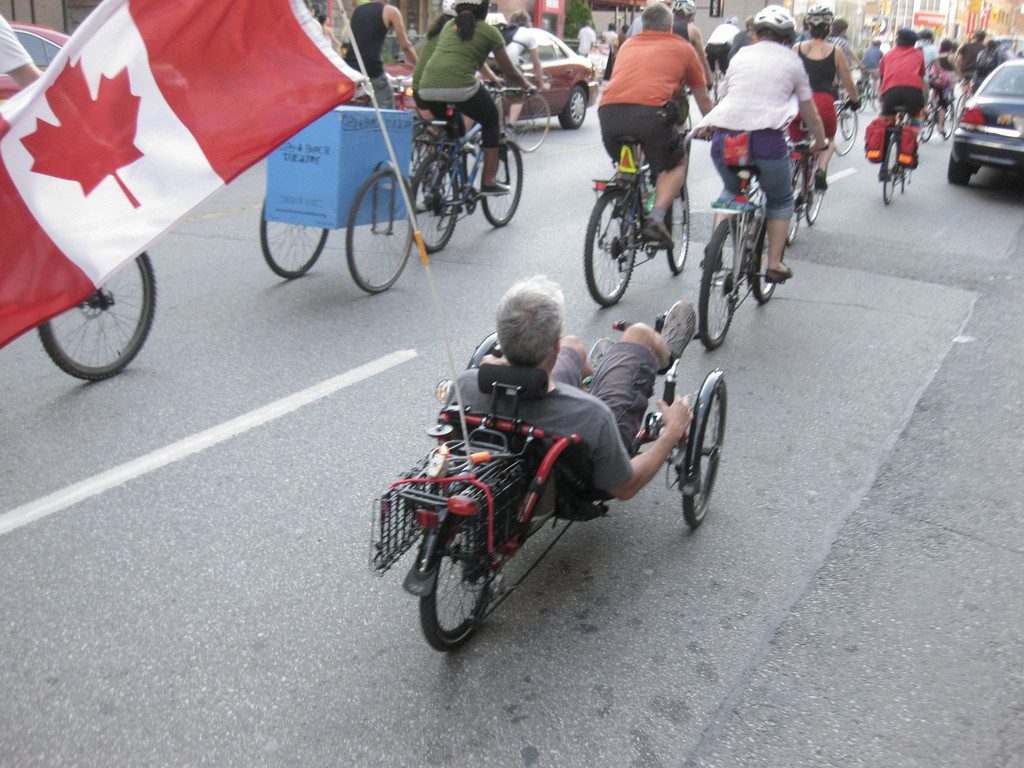Two Ontario men bike 600 km from Ottawa to Toronto for those injured in the workplace


There’s Bike to Work Week, and then there’s biking for workers. For two Ontario men this week, riding from Ottawa to Toronto, that’s the mission turning their wheels.
Ottawa’s Richard Hudon and Peter Page, from Hamilton set out at 8 a.m. on Monday, making the 600-km journey south toward Toronto. En route, the ride will stop in Cornwall, Brockville, Belleville, Kingston, Cobourg and Oshawa, before rolling in to Toronto on June 1, in time for the Injured Workers Day rally happening at Queen’s Park. Why are they doing it? To raise awareness about the plight of those injured on the job, and what they see as the Workplace Safety and Insurance Board’s “current state of affairs,” to quote the Ottawa Sun.
“When there’s 320,000 workers a year that become injured in a workplace,” Hudon said, “it raises a lot of questions.” Hudon, unfortunately, would know. Fifty-four years ago, Hudon—then 17—lost his leg in a workplace incident involving a saw. Riding a recumbent bicycle, Hudon’s personal goal during this week’s ride is to make sure that Ontario’s youth know about their rights if they’re ever similarly hurt in the workplace.
Beyond that, though, there’s also a warning in the message. Increasingly coming under fire for inadequately compensating workers, unfairly processing claims, and other shortcomings, the WSIB, Hudon said, isn’t the safety net for injured workers that it should be .”[Young workers],” he told the Ottawa Sun, “need to know what they will be losing if they [the WSIB] ever privatize.”
Page, meanwhile, put a finer point on things. “The purpose is to draw attention to injured workers in Ontario who have been driven into poverty,” he said. “We felt we wanted to let the general public know that a lot of people don’t understand when they get injured what they’re in store for.” A former automotive worker who was driven out of his job by a repetitive strain injury in his elbows, the blame for the current state of affairs, Page said, lands squarely at the feet of the provincial government.
“The Liberals gave us a cost of living increase in 2008,” he said. “Since then we haven’t had any increases. There’s a million issues I can bring up, but the bottom line is the injured worker is getting the short end of the stick.”
Along the way, Hudon and Page are collecting signatures for a petition on behalf of injured workers: what they’re calling the “Big Book of Injured Workers.” Upon arrival at the Injured Workers Day rally in Toronto on June 1—the terminus of the ride—Hudon and Page hope to present the petition to premier Kathleen Wynne, aiming to set a compensation system in place that will better assist workers when injured.
